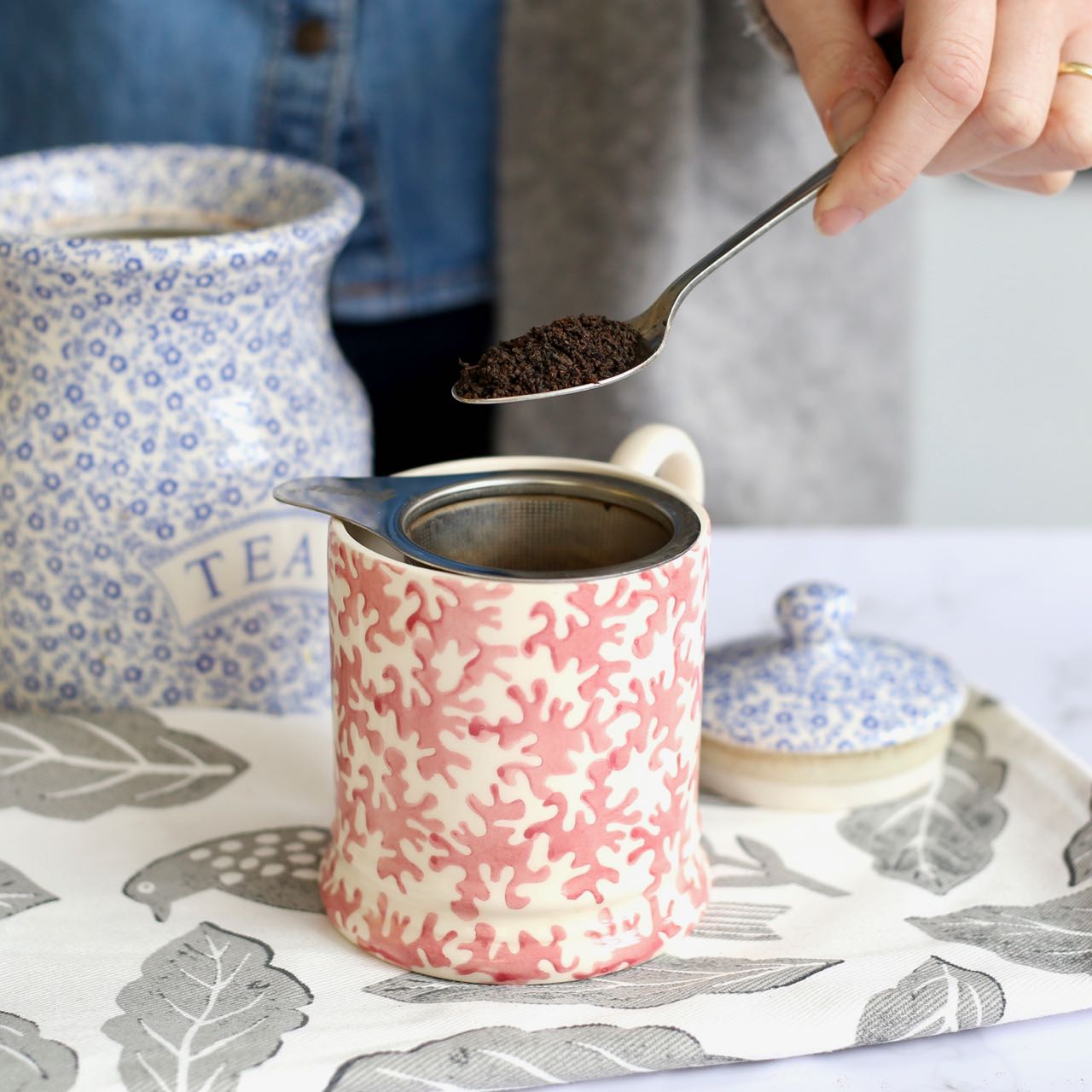
Teabags. They’re not as simple as we thought.
I’ve been putting them in my compostable waste for years and always thought they were pretty harmless. Sadly, it turns out things are more complicated. That’s because tea bags are glued together with plastic. It stops them falling apart, but it also stops them biodegrading fully. Some teabags contain as much as 25% polypropylene.
For me, the humble teabag is yet another unsettling reminder that I’m using too much plastic. Not because I need it, but because it’s convenient. Because no one actually needs a strong tea bag glued together with plastic, do they? Its nice, yes. And it’s convenient. But is it essential to human life?
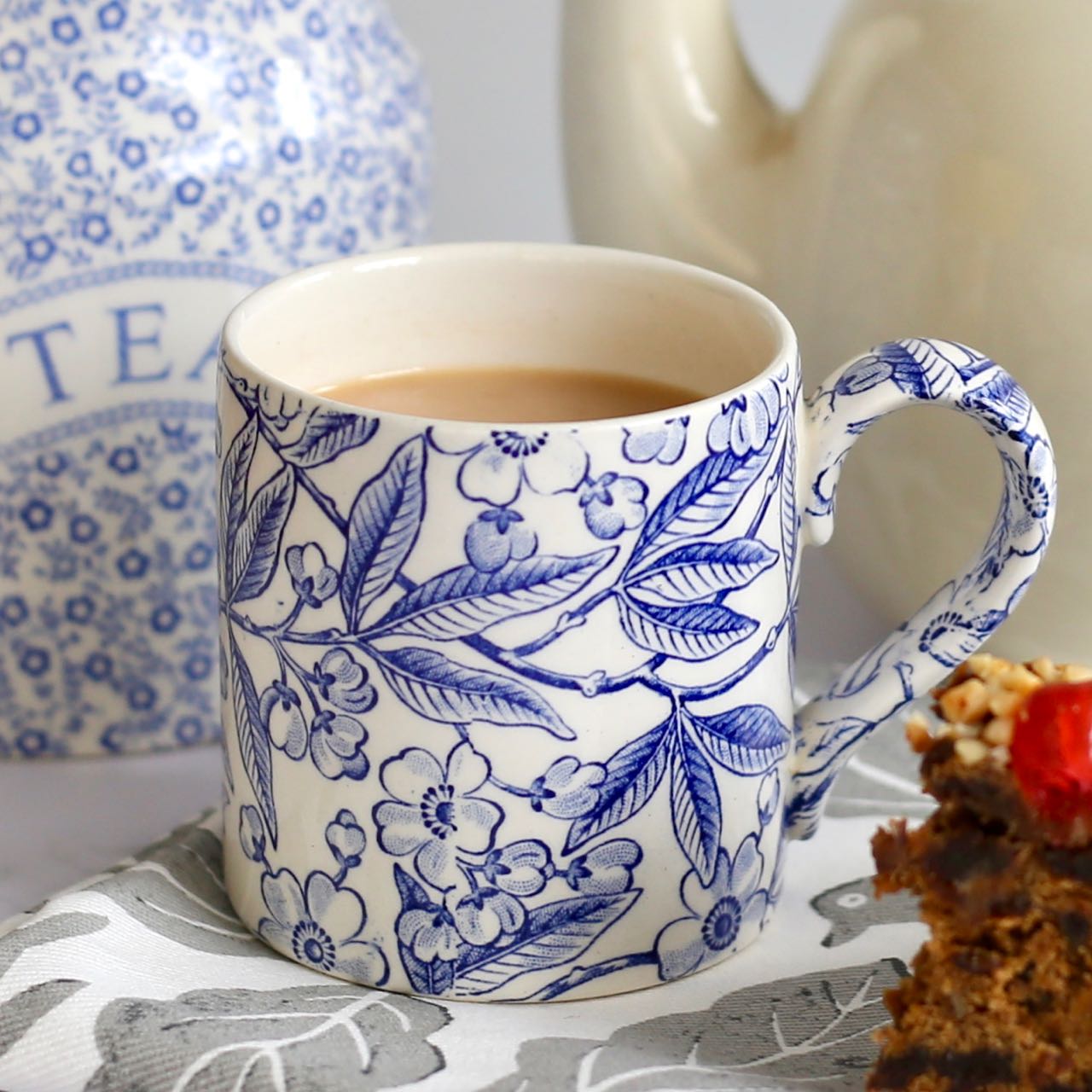
People have been drinking tea for a long time. The tea bag is a relative newcomer in comparison, but over the last fifty years or so it’s almost completely replaced loose tea. Like buying meat in neat, hygienic packets or soap in plastic dispensers – it’s quick, easy and we’ve got used to it.
But our simple and convenient lifestyle has consequences. Most of us have known this for a while, and it’s getting harder to brush it under the carpet. I was genuinely shocked when I heard that there is plastic in teabags. And I bet quite a few of you were too. Shock is good, because it forces us to change our habits.
And that’s why I’ve swapped my teabags for loose tea.
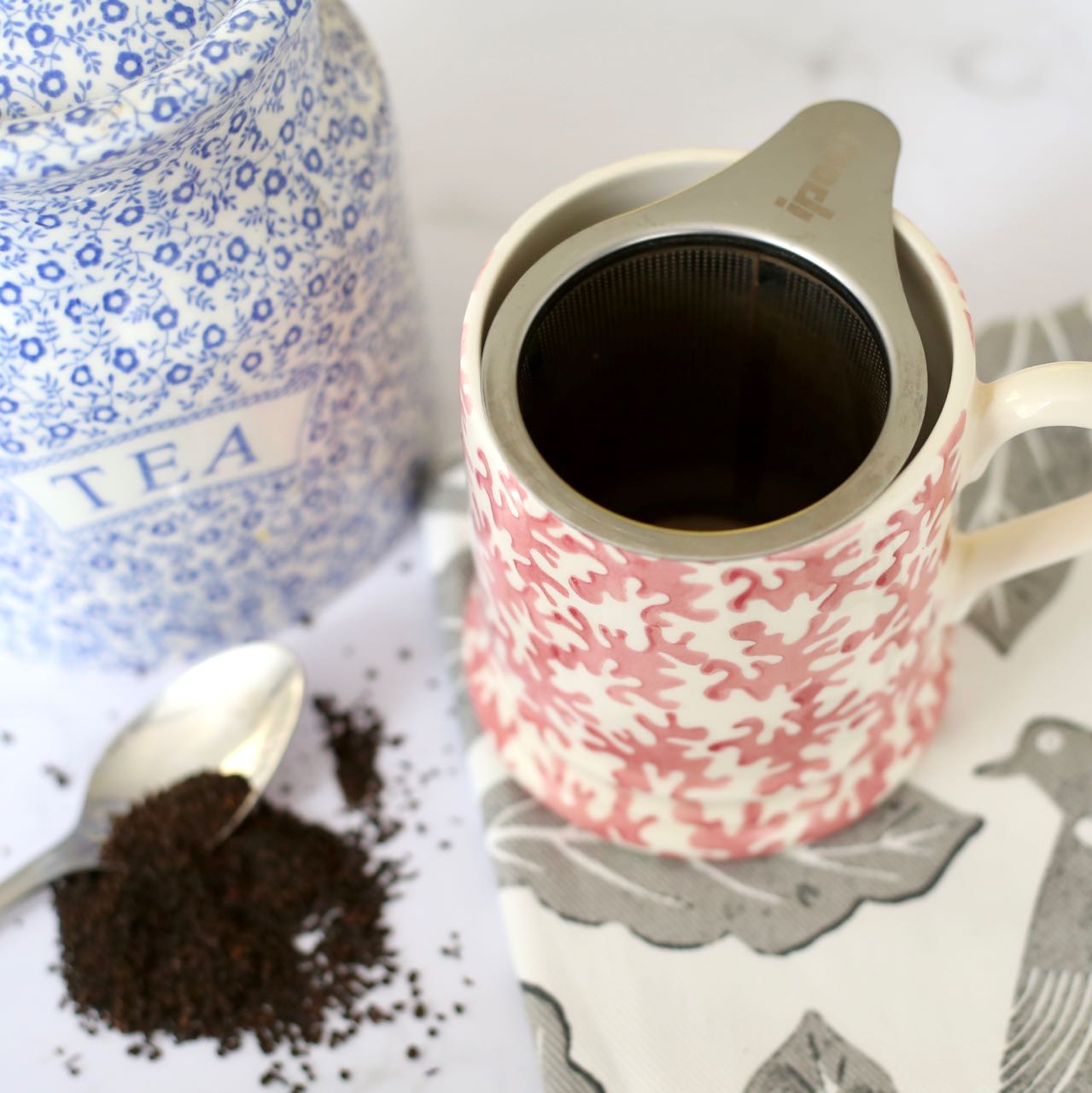
It’s no good me telling you that using loose tea is going to save the world. It isn’t. But if enough of us make small changes it does make a collective difference. It’ll cut down on the plastic that has been contaminating waste. And it’ll send a to tea companies that we’re not happy.
Drinking loose leaf tea takes a bit of getting used to. It helps to invest in a few useful things before you start. I have a teapot with a removable metal tea filter and I have several smaller metal filters with are the right size to sit in a mug. When I’m done, I bang the tea out into my compost bin.
It’s messier and it’s drippier. But it has one big compensation: it tastes better. It’s a bit of a revelation, to be honest. I used to only drink loose tea on high days and holidays. Now, it’s my everyday staple and I don’t know why I allowed myself to be conned into drinking such bad tea for so long.
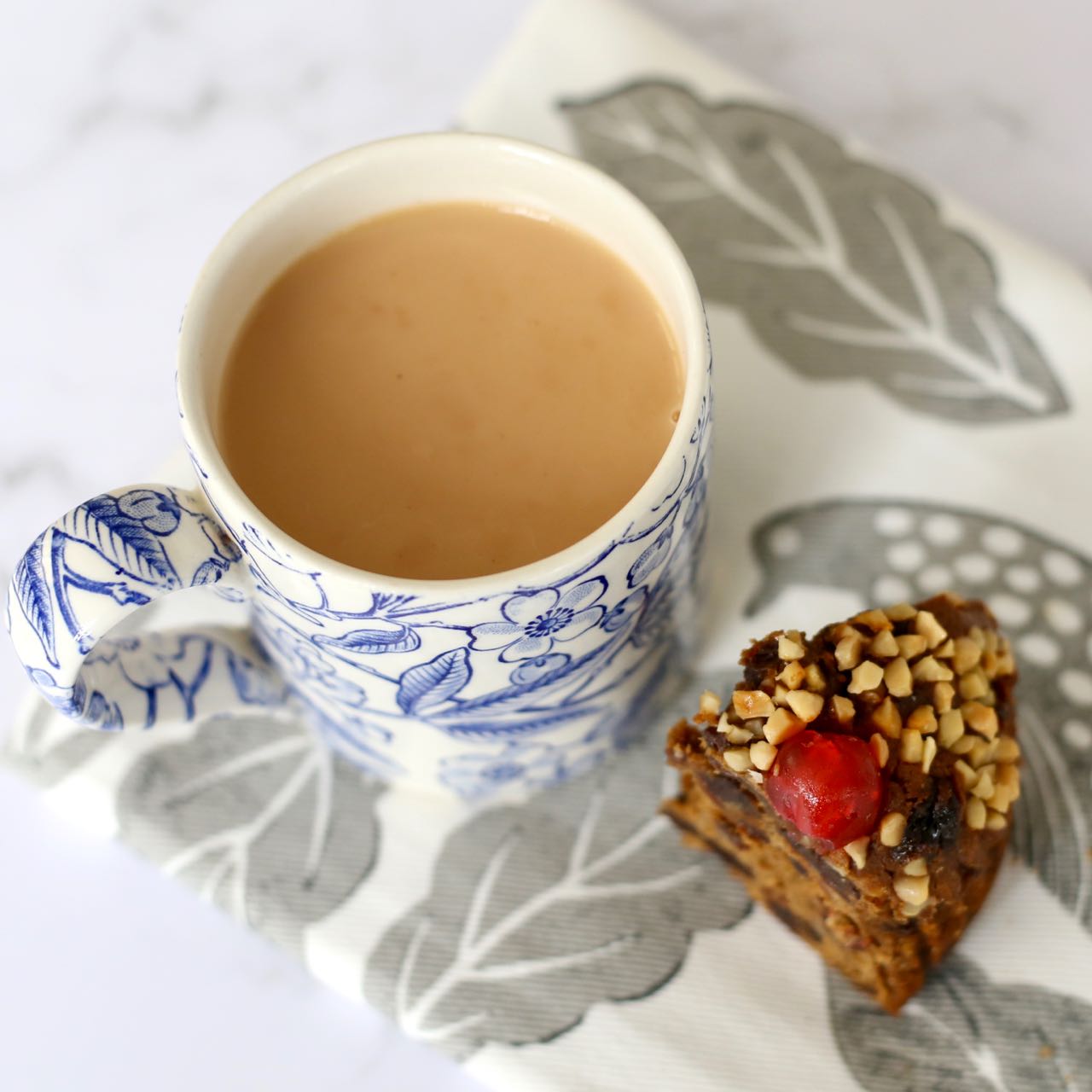
There are, however, a few problems with loose tea. Some are easier to solve than others.
Mess. I don’t mind it, but it’s not for everyone. I can’t see it taking off in the average office anytime soon, for example. Which is why it’s so important that tea companies make a commitment to making their teabags plastic free.
Cost. As it became less common, it was inevitable that loose tea would morph into a luxury product. That’s how I’ve always seen it. It is possible to buy affordable loose tea in bulk, but you’ll probably have to do it online. I order mine from Tugboat teas, whose English breakfast blend is delicious and affordable. I buy it in 500g bags and I’ve worked out that it costs me about 7p a cup. In comparison, my usual Yorkshire gold cost me about 3p a cup. So, there’s a difference. But it’s not bad when you consider just how much better it tastes.
Packaging. Buying loose tea is great, but it comes with its own packaging. And it’s not the friendliest. The bags I buy online are paper pouches lined with foil. I can’t put them with my recyclable waste, but I can post them back to the Tugboat teas who will have their own recycling scheme. It’s not ideal. I’m working on finding a local source of affordable loose tea where I can take my own container along and have the tea weighed directly into it.
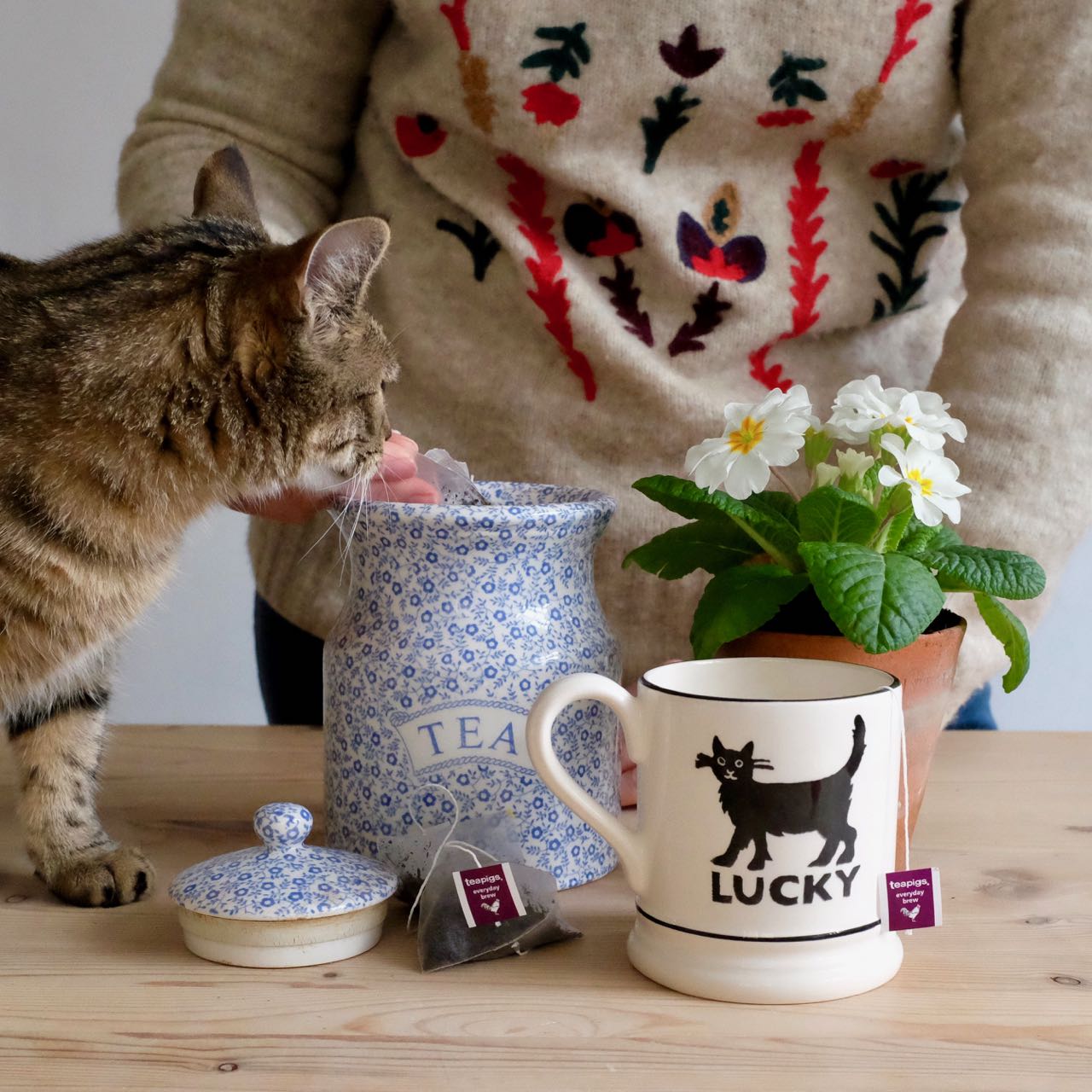
Don’t want to give up tea bags?
You’ll be pleased to hear that lots of tea companies, like PG Tips and the Co-op, have pledged to go plastic free. And some brands are already doing it. Teapigs are a great example of a company who are getting it right.
I’ve lived without tea bags for a couple of months now and I wouldn’t go back. My next challenge is milk bottles!
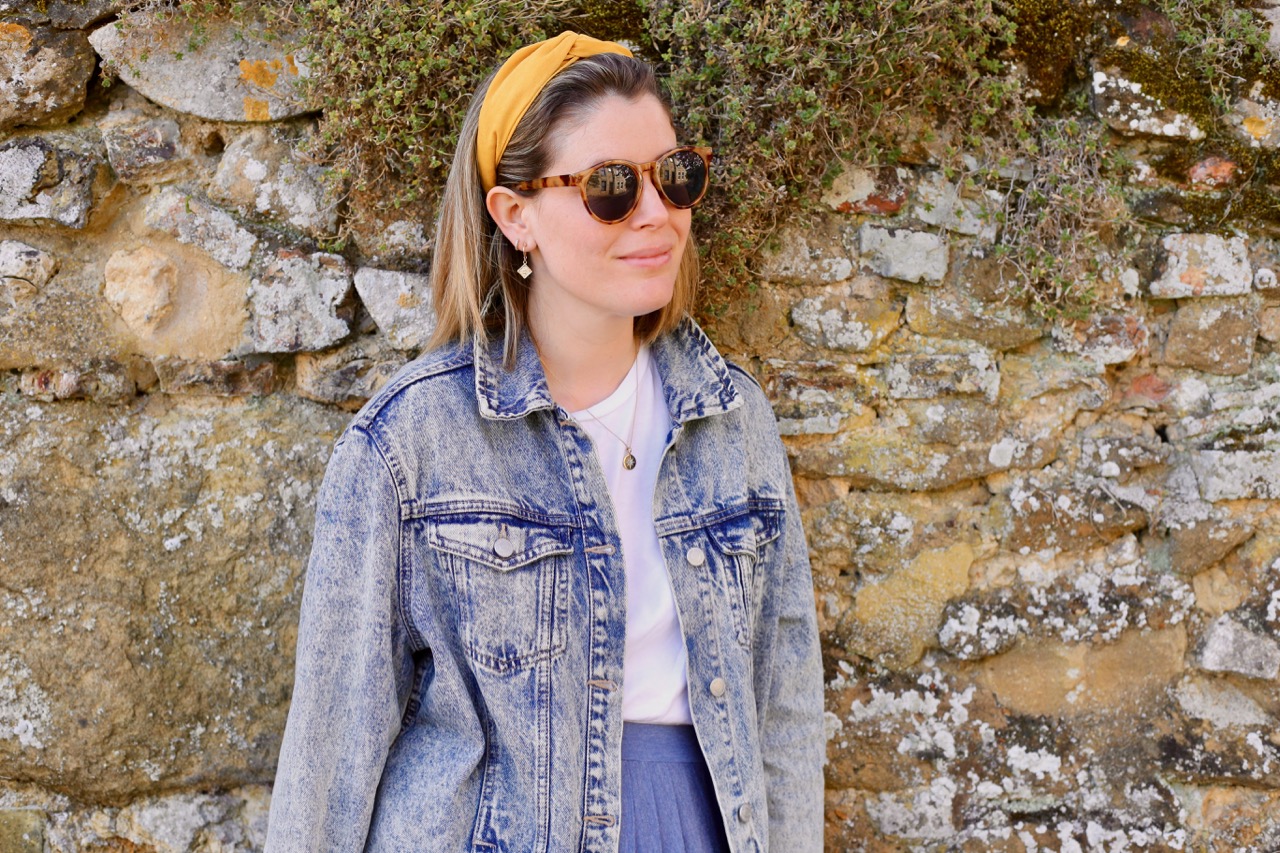
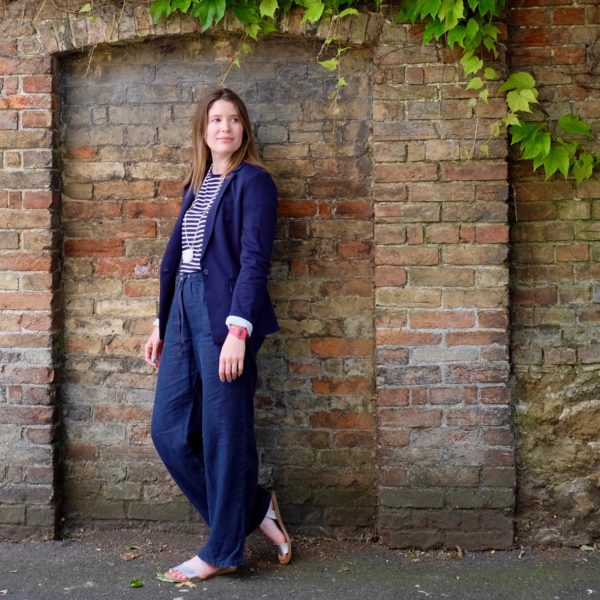
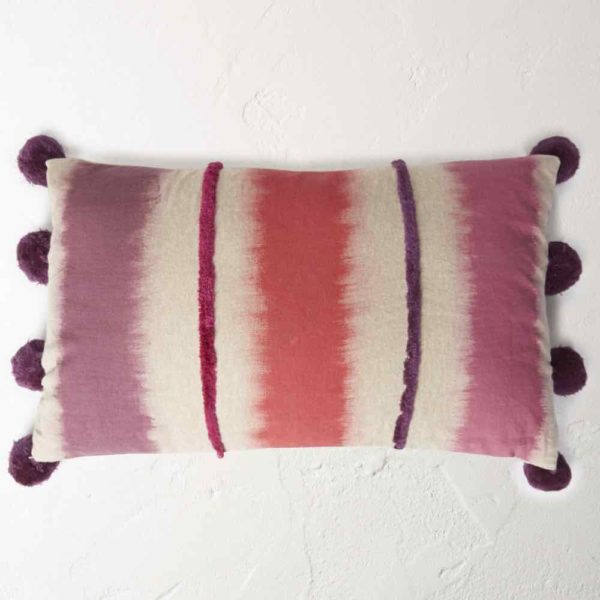

Thanks for sharing this blog post!
I had no idea that teabags contained plastic. I’ve been making it my mission to try to become as eco-friendly as possible, mostly regarding organic, local produce as I became increasingly worried about putting bad things into my body. But I’m also concerned with doing my bit for the environment.
Like you said, it is difficult to change habits, but buying loose tea instead of regular teabag tea seems like something I’ll actually enjoy. There’s something lovely about the whole brewing process 🙂
Love, Debs @ tiger-mint.com
Thanks Deb! I think you’re right: brewing and drinking loose tea does feel that bit more special!
Interesting – I didn’t know most tea bags contained plastic. I always try and buy clipper tea bags anyway as their tea
bags aren’t bleached and I think they are 100% biodegradable but will definitely check.
Faye x
Hello Faye! Yes, I had no idea until recently. Clipper normal teabags do contain plastic, although their ones with string and tabs don’t! I think they’re working on eliminating it though and hopefully it won’t be long before all the major brands are plastic free.
Loose leaf tea! You are speaking my language here! Sooooo much better than from the bag! And I find it lasts way longer than bags! Aldi have a really good, affordable range and it really does taste good. Another company is tea pigs. When you buy from them, more often than not it comes in a really handy reusable tin. But they do send some in bags. but paper bags, which are recyclable.
They have some AWESOME blends too which I switch to when I’m feeling adventurous, my sister bought me a blend of cinnamon, ginger and lemon for my birthday about 2 years ago, I’m still using it now and it is STILL as fresh as it was. But You CANT beat the traditional blend!
For those of you who still use bags, the national trust blends are brilliant. I think they are fully biodegradable too. But as always the cost is a little bit higher!
I love tea! I couldn’t live without it!
I love Teapigs tea! So delicious. I’m keen to try that plastic free Aldi tea too!